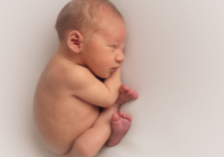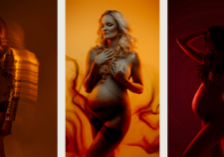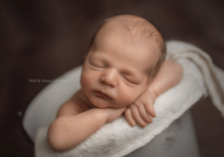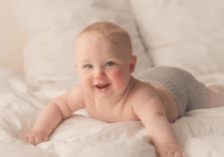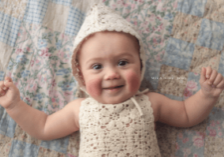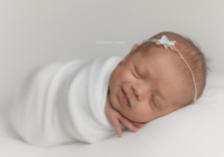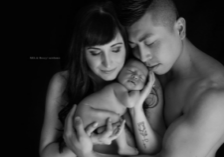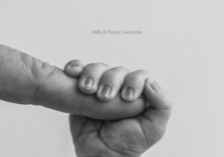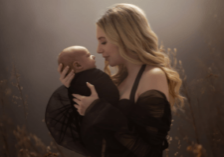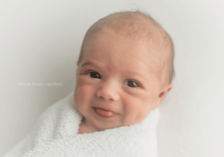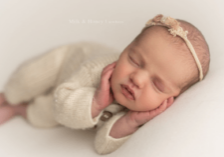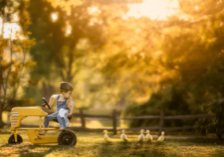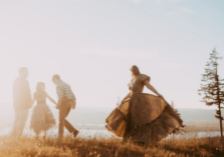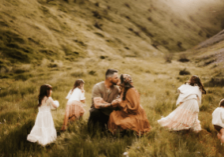Tiny Posers: How to Build a Long-Lasting Newborn Photography Brand with Kristina Mack
When it comes to building a photography business, you need a camera, some clients, and a little bit of hustle, and you’re good, right?
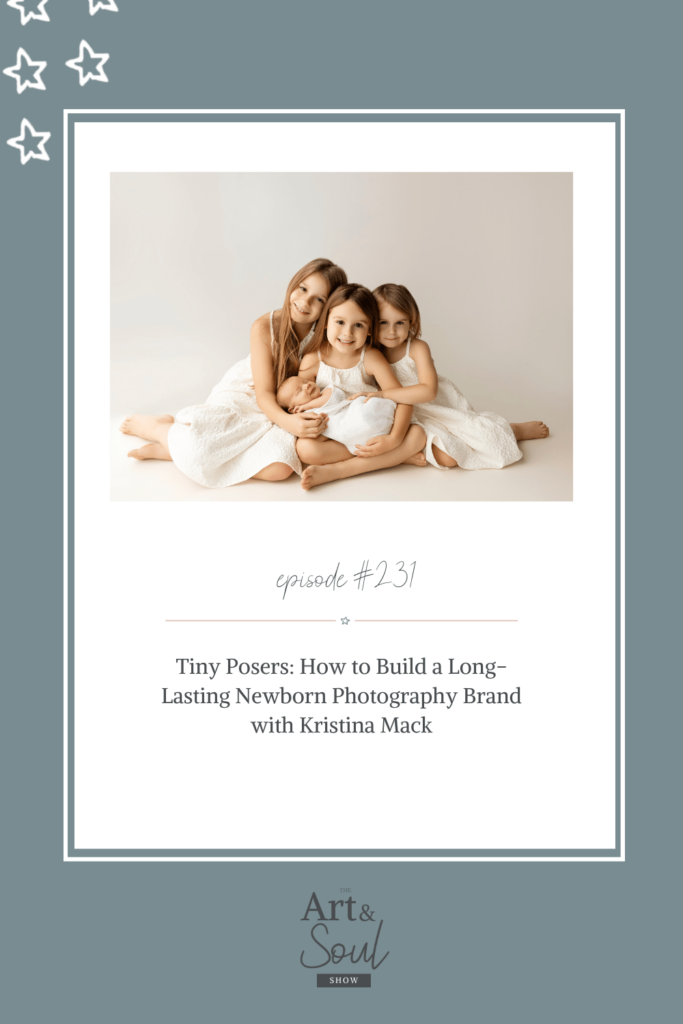
Well, while you do need all those things, Kristina Mack would argue that you need one more essential piece: your business fundamentals. Planning your workflows, creating detailed and well-crafted experiences for your clients (even if you have a basic budget), and understanding how to price for profitability can make or break your business.
So today, Kristina is sharing the steps she took to create a sound, profitable photography business that has lasted decades–without burning out! She’s giving us her best tips for new photographers in the industry including how they can develop their own unique style and how other photographers can join her mentorship program and start making positive changes in the industry.
What’s in this episode:
- [02:38] How Kristina’s career plan changed from commercial to newborn and maternity photography
- [07:26] Kristina’s advice for photographers still trying to figure out their unique style and perspective
- [16:42] Why new photographers have to spend time building their business fundamentals, from client management to pricing and workflows
- [26:53] How Kristina thinks about outsourcing and the process she uses to find and train her editors
- [30:46] The mindsets and philosophies that Kristina teaches in her photography business school
- [34:53] Kristina’s lightning round
If you’ve been hustling, but never feeling like you’re getting anywhere in your photography career, tune in to this episode with Kristina Mack:
SUBSCRIBE: Apple Podcasts | Spotify
Meet Kristina Mack
Kristina Mack is a professional newborn, maternity, and family photographer, mentor, and now author. She has been specialising in the art of newborn photography for more than 17 years, teaching other photographers both the craft and the business of newborn photography for nearly a decade now. She is also the author of the book, ‘Newborn & Maternity Photography: Learn the Skills and Build a Business,’ which was released in August this year.
Connect with Kristina
Did this episode with Kristina Mack help you plan for the long-term success of your photography business? Check out this episode Creating Balance & Ease in Your Photography Business with Dawn Potter who shares how another photographer started their career!
Transcript
[00:00:00] Kristina: Cause you can’t sustain your business without profit if you’re unprofitable. So profits are very important. Do not lower your price just because you’re starting. I mean, if your work isn’t there yet, then obviously you can’t charge because you can’t charge for something you can’t provide. But if you can’t provide, don’t be scared to charge the price you’re worth being paid.
[00:00:20] And also customer experience. I think customer service is the most important thing. I can’t remember which photographer said, I realized that photography is not just to remember the moment, but to remember how you felt in that moment. And that’s what our clients will remember as well. Not just what you created, not the photograph you captured.
[00:00:43] Not something that’s sitting hanging on your wall or sitting on the outside table in an album, but also what they felt. So for me, my client experience is my most important thing, like probably more important than actually the images I’m creating. And they think [00:01:00] it’s often overlooked.
[00:01:07] Lisa: Hey friend, welcome to the art and soul show. I’m your host, Lisa DiGeso, a mom, a photographer, and entrepreneur. Tune in here for pep talks, conversations, and advice on photography, creativity, mindset, business, life, and that messy in between. This is the place where you can go when you need a boost of encouragement, a kick in the pants, and inspiration to pick up your camera.
[00:01:29] This is the art and soul show. Hello, my beautiful friends. Welcome back to the show today. I’m super excited to dive into today’s conversation with Kristina Mack. Kristina has been photographing newborn babies for over 17 years with tiny posers, a lover of simplicity. She creates. Soulful, elegant and timeless images.
[00:01:50] Her unique style has attracted TV personalities, public figures, and celebrities. Kristina has been mentoring fellow photographers on how to find their own style and take their [00:02:00] newborn photography skills and businesses to the next level. for nearly a decade now. She strongly believes that photographers don’t need to be starving artists and that a side hustle that often starts from the love of photography can also be a very profitable business.
[00:02:14] Inspired by feminine strength, she’s a very passionate about self worth, confidence, and encourages women to play a bigger game in life with an I can have it all attitude. She’s also the author of the new book, Newborn Anthropocene. Maternity photography, learn the skills and build a business, which was released in August this year.
[00:02:32] Kristina, welcome.
[00:02:34] Kristina: Hi, it’s so lovely to be here. Thank you for having me here.
[00:02:38] Lisa: Absolutely. I’ve been excited about this conversation. So what first inspired you to specialize in newborn and maternity photography?
[00:02:47] Kristina: So newborn and maternity photography came into my life accidentally. There was never my plan.
[00:02:53] My plan was to be a commercial photographer and that’s where I was heading. And then my friends start [00:03:00] having babies. I had my own babies. Motherhood and commercial photography doesn’t work unless you have a lot of childcare. And this is when I gradually, slowly started moving and became a full time maternity and newborn photographer.
[00:03:15] And for many years, I, in the back of my mind, always had this as a temporary job. I always thought one day when either kids start school, I go back to my commercial work. Or if, uh, when kids start secondary school. There was always this thought in the back of my mind that one day I’m going to go back to my commercial work.
[00:03:35] However, I find so much fulfillment in newborn and maternity photography. Also, it can be a really lucrative business if you, if it’s done right. So yeah, I just decided, you know what, I’m so happy where I am at the moment. Why change? I love that.
[00:03:52] Lisa: Well, your style, I can, I can pinpoint your images as soon as I see them pop up on my Instagram feed.
[00:03:57] I know it’s tiny posers, a hundred percent. [00:04:00] So how has your photography style evolved over the past 17 years?
[00:04:06] Kristina: Oh, it changed dramatically.
[00:04:08] Lisa: Yeah.
[00:04:08] Kristina: I probably would say it was in three stages. So when I started, that was Many years ago, way before Google. So I was deeply inspired by documentary photographers like Salomon, Larry towel, and Matt going, they all very raw, very intimate, very emotional, multi motherhood and family photographers.
[00:04:31] And this is where I was going with my style. If you could call it style then. So it was more, more raw, more documentary, more lifestyle. Wasn’t anything post. I was a little bit stuck. It’s posed and styled, but nothing to the extent that what I do today. And then my second stage was when Google started and, uh, I started looking at other photographers work who work in the same niche and I completely lost myself.
[00:04:58] I started buying blankets, [00:05:00] buckets, flower heads, all sorts of different things. And that was probably for about four or five years in my career. Where I didn’t know who I am, I wasn’t happy with my work, I was forever searching, always had this thing, if I only get this blanket, I will be happy and it will be what I love.
[00:05:19] But it never was, never satisfied me. I was never happy. And then thought, I just sat down and said, look, I’m very plain person. I don’t like lots of color. I don’t wear lots of color. My house isn’t colorful. I don’t like clutter. I don’t like things around me. Let’s strip it all back and see what we can do with it.
[00:05:40] And when I stripped everything back, I bent all my props or sold some of them. And I start feeling like, you know what? I’m loving this. I’m liking it. And then I reconnected back. So it kind of went back to a little bit, my inspiration that I had in the beginning, but I brought it to a different level. So I [00:06:00] created more classic, more, slightly more polished, but I still try to evoke emotion, intimacy.
[00:06:07] simplicity, classic, timeless. So it’s very, very different. So I say even from completely documentary to overly posed and styled to where I am now very happy with very simple images, which I also believe, like I believe in timeless things. I’m not a spender. I don’t consume a lot. If I buy something, I think 20 times and I only buy something that I could wear until it perishes instead of replacing something every season.
[00:06:38] So this, for me, I feel my style, current style, it really works not just with my aesthetics, what I like to see, but also with my values and personality.
[00:06:49] Lisa: I love that. I think because that really speaks to my heart. I went through that whole journey myself where, you know, when I started, I think it was about 15 years ago.
[00:06:57] And really the only. [00:07:00] Newborn photography that I was really exposed to was very much just Ann Gettys and maybe Tracy Raber and Kelly Ryden and Baby Izzard. That was it. That was, those were the only newborn photographers that were on the scene. And as the, as things progressed, like, I got into that really bad habit of trying to spend my way to better photography and not understanding what my style is or was.
[00:07:26] And that really took many, many years for me to figure out who I was. And that’s really a plight that many of our students and many of our listeners have is that they don’t know how to develop their own unique style. So what advice would you have for that, for trying to figure out who you are?
[00:07:45] Kristina: So I think I was very lucky that when I started, there was no Instagram and no Pinterest.
[00:07:51] So the first thing I would say, turn everything off and look deep inside you. I think the fact that we are exposed to so many images in the [00:08:00] same niche, in the same genre that we lose ourselves. You look at one, you think you like that, you look at the other one, you think you like that, but you don’t know really what you like anymore.
[00:08:09] You don’t let yourself think what you like. So I always suggest look for inspiration in other artists works that can be photographers, but not necessarily Photographers that specialize in the same niche Or maybe look at the photographers who photographed a hundred years ago, see, find what speaks to you or different artists like painters, even poets, like they all can inspire you and help you find also find interior design really helps me also to find my style.
[00:08:41] Look at the image and find what exactly attracts you to that image. Is it light? Is it the way the baby or family or mother is posed? Is it colors? Is it styling? Is it the mood? Is it the feeling? Connection? Pick images apart [00:09:00] rather than just look at it and say, Oh, I like it. It’s a nice image. I’m going to add this to collection and try to replicate it.
[00:09:06] I think that’s the worst thing to do. I think this way you’re never going to find who you are. You’re just going to keep replicating and replicating without knowing. So this is a bit where I was in that middle journey when I was trying to find my style. Just start always looking for something never happy.
[00:09:22] and never finding anything. So I think to get that satisfaction, you really try to find what inspires you. And I say, absolutely do not look to other photographers work. Don’t be scared to be different.
[00:09:35] Lisa: It’s
[00:09:35] Kristina: okay to be different. That’s why your client’s going to come to you because you’re different, not the same as everybody else.
[00:09:42] If everybody else is using the same blanket, don’t use it. If everybody buys. Props from whatever seller don’t buy them. Find your own seller, find your own things. Why didn’t buying the same thing and trust your [00:10:00] instincts because deep inside you, you will know, you will know what’s right to you and also be patient.
[00:10:06] It takes so long time. It took me years, took me at least four, five years until I managed to find my style and where I’m happy.
[00:10:16] Lisa: I love that you talked about emotional connection too, because that’s something that our students are always talking about, that they’re trying to evoke in their work. And a lot of them struggle with having clients come in and they’re, they’re posing or they’re looking directly at a camera and they’re really stiff.
[00:10:32] So do you have any tips on sort of creating that atmosphere for that? emotional connection to be
[00:10:39] Kristina: nourished. So first I have to say I’m not a cheesy person. I wouldn’t crack up silly jokes. I wouldn’t say things like look at each other and think about love or look at the baby and think about the love to the baby.
[00:10:53] So I would never say things like that. And it’s not me, you’re just like, I’m cringing,
[00:10:57] Lisa: I’m cringing,
[00:10:58] Kristina: [00:11:00] I just don’t feel comfortable. So I talk, I talk a lot to my clients. So from the moment step into my door, we always talk, I try to find their life story, how they met, how they connected, what’s their pregnancy journey.
[00:11:15] And I think just building a relationship with my clients. So often when my clients leave, they feel like they had the best time or always, I hope always when they leave, they feel like they had the best time. And we have really, I feel like my friends are leaving, not just clients. And I think that connection.
[00:11:32] So by the time I usually photograph baby on his or her own to start with, usually takes me about half an hour, 45 minutes during that time, I’m always talking to them. So when it comes their turn, we’re already friends. And then if someone is really stiff, just simple, ask them, tilt your head towards the window or tilt your head towards each other.
[00:11:54] Once you have someone standing with their head straight up, it reminds me of stiff passport photograph. [00:12:00] So just by just asking someone, just tilt your head. It not just makes it look more comfortable, but also they relax. And another word I never use is relax. If you keep telling someone, just relax, just relax.
[00:12:17] Everything tenses up even more, the shoulders go up and it just, yeah, goes even worse. But I say just simple, tilt your head to the side or look down towards the baby. So just give, I give a lot of directions and I talk like I talk nonstop and I always say like, Oh my God, this is amazing. I love it. Oh, this looks so beautiful.
[00:12:36] So want them to feel comfortable. I also don’t want them to think if, Oh, am I looking awkward? So, so I guess, yeah, but just tilting the head because my clients. love intimate portraits where they either look at each other, parents look at each other or look at the baby, but they also love classic looking at the camera portraits.
[00:12:57] So I always shoot both, but [00:13:00] looking at the camera classic portraits, if you just ask them to tell their heads, it’s gonna release all the tension and it will make image a lot more. Softer and kind of that two post over post feeling is gone.
[00:13:13] Lisa: I love that. I think you really hit the nail on the head there.
[00:13:16] It’s about setting that scene of creating that environment where your clients can. relax without you having to tell them. And I use that same technique as just using, I talk a lot. I talk a lot with my clients too. And it really, I find you just build this rapport with your clients that you do end up friending them on Facebook afterwards quite often.
[00:13:36] I
[00:13:38] Kristina: also have my clients coming back to me a lot. So I feel like it’s just part of their life story.
[00:13:44] Lisa: Yeah.
[00:13:45] Kristina: You know, like I’m becoming your friends and we’re sharing, they know things that happening in my life. I know things that happening in their life. It’s just beautiful relationship.
[00:13:54] Lisa: I love that.
[00:13:55] Kristina: That’s great.
[00:13:57] Lisa: So what inspired you to start mentoring other [00:14:00] photographers?
[00:14:01] Kristina: First I got asked a lot. Can you teach me? Can you teach me? Tell me how you do it. But then also I really want to change the industry. And I believe if more experienced photographers with the right mindset and the right business skills would teach younger photog, or not necessarily younger in age, but the beginning photographers.
[00:14:20] Lisa: Yeah.
[00:14:21] Kristina: Then it could change the industry because I feel like. this genre is not valued as well as the other genres. Yeah. And I feel like there was a point when almost me myself, if someone say, Oh, what you do? And I would say, I’m a photographer. And they say, Oh, we photograph or what you photograph. And for me to say, Oh, babies, it’s a bit like, it’s not worthy almost.
[00:14:47] Yeah. And I feel like a lot of photographers, just because they photograph babies, they feel they undervalued. Or they don’t have enough self value. So I just want to just basically change the industry [00:15:00] and also find when you start this journey, you spend so much time perfecting your skills as a photographer, especially posing new ones that you completely ignore business side.
[00:15:12] Yep. Without business side, nothing’s going to happen. Yeah, I agree. I completely agree. Yeah. So that’s probably just to change the industry and to give more value and more self esteem to women. And more power to other photographers.
[00:15:27] Lisa: I love that. I think it’s fascinating that, you know, the wedding industry and especially I used to work in the wedding industry and the amount that people will spend on their weddings or their, that they’ll spend on wedding photography, but then when it comes to their newborn photography, which to be honest, I love my husband, but the birth of my son, like trumps our wedding day.
[00:15:46] Absolutely. Right. And, and I don’t have newborn photos. Of my son, right? No one was doing it at the time. And that inspired me to like pick up a camera, but I do find it fascinating that when you look at pricing for [00:16:00] weddings and you look at pricing for newborn photography, and we are experts in safety and posing and lighting, but it’s not looked at the same way.
[00:16:09] And I really think that is interesting. And I’m hoping that the industry does change and it becomes more valued too. I really hope so, but I also believe
[00:16:19] Kristina: that it’s us that needs to change the industry. As women, we don’t often give ourselves the credit, like we don’t value, we don’t have that much self esteem.
[00:16:29] We always try to be a bit lesser, a bit smaller. And I think that translates into how others perceive us, including our photography business. It’s a little bit less worth.
[00:16:42] Lisa: Yeah. I totally, I completely agree with you. So what do you believe is the most important business lesson that photographers often overlook.
[00:16:50] Kristina: Probably fundamentals, I would say, but that would go not just probably business, but also to creative side and photography side. People wanted everything straight [00:17:00] away or yesterday would be best. So we don’t give time to build anything. So we jump in, we want clients, but we can’t serve them because everything else, everything is falling apart.
[00:17:12] You don’t have your business set up from the ground, your foundations aren’t there, but you want a roof on your house. So I think starting from fundamentals, from very, very basics, having a plan, understanding how everything works, creating systems, creating workflows, and then obviously pricing. Don’t undervalue yourself.
[00:17:35] That’s another thing I think is very important, especially being a female photographer. Again, going back to that woman thing, because you can’t sustain your business without profit if you’re unprofitable. So profits are very important. Do not lower your price just because the starting. I mean, if your work isn’t there yet, then obviously you can’t charge because you can’t charge for something you can’t provide, but if you can provide, [00:18:00] don’t be scared to charge the price you’re worth being paid and also customer experience.
[00:18:08] I think customer service is the most important thing. I can’t remember which photographer said, I said, I realized that photography is not just to remember the moment, but to remember how you felt in that moment. And that’s what our clients will remember as well. Not just what you created, not the photographs you captured, not something that’s sitting here, hanging on your wall or sitting on the outside table in an album, but also what they felt.
[00:18:37] So for me, Like client experience is my most important thing, like probably more important than actually the images I’m creating. And I think it’s often overlooked.
[00:18:48] Lisa: I
[00:18:49] Kristina: think we’re so focused on the images that we forget that experience and the client. So start from fundamentals, build your house from foundations, brick [00:19:00] by brick, and don’t just go, how can I find clients?
[00:19:03] I want to serve them, but you can’t serve them because you don’t know how to serve them.
[00:19:07] Lisa: I agree. I think it’s so important. And I think that a lot of the time, especially beginning photographers, or even those that have been in the industry for maybe a couple of years and are just starting to charge, they don’t even know what the foundations are.
[00:19:19] So they’re trying to decorate the house and the house isn’t even built yet, but they don’t even know how to build a house because there’s no plan. And I think that that I, you hit the nail on the head because the, the real answer is looking at and finding out what those foundations are, what the systems you have to have in place.
[00:19:34] Yeah. Another thing that I find interesting, and it’s something that I’ve gone through too, is because I have a home based studio, that we sometimes value ourselves less because we don’t think that we have this experience of going into a studio or a commercial space, and so we should be making less because it is not as quote unquote professional as everyone else.
[00:19:58] What are your thoughts on that? [00:20:00]
[00:20:00] Kristina: So I had a home studio until about six years ago. I think it was about six years ago that I moved into commercial place. I think it depends how you perceive your home. So when I worked from home, it didn’t look home. I had so many clients asking, do you live here? Like, this is how professional the space looked.
[00:20:22] So I think it’s very important that when you have a home studio, you need to make sure it’s professional. Like you don’t want your slippers or your kids toys or some socks somewhere where a client can see, or you don’t want to cook, I don’t know, an omelette when you open the door to get your clients in, the first thing you get the smell of that omelette that you cook for breakfast.
[00:20:43] So little things like that, things like that, I think that’s so important. So, if you make those changes and you make your space professional, you treat it as a commercial space. I think your clients will perceive it the same way.
[00:20:57] Lisa: Yeah.
[00:20:57] Kristina: I’ve photographed lots of, uh, [00:21:00] celebrities in my house, so it doesn’t stop, but you have to make sure you’re not, like you can’t photograph in your kitchen, you know, with all your, I don’t know, cutlery and cutlery and dirty dishes.
[00:21:13] In a sink or you can’t get them if, if they need to go to a toilet, you can’t have them walking through your entire house and seeing all your mess. If they have to, you have to make sure that house is so super tidy that it looks like no one lives there.
[00:21:28] Lisa: A hundred percent. That’s a really great answer. So you strongly believe that photographers don’t need to be starving artists.
[00:21:36] So how do you develop this business mind approach and teach others to do the same? So
[00:21:42] Kristina: I think first I have to say I’m an immigrant. So I have an immigrant’s mindset first. And I, when you are an immigrant, you work slightly harder than everyone else. And you’re a bit hungrier than everyone else. But also we are always, we are women.
[00:21:59] We are so [00:22:00] strong. We give birth or we carry baby. We give birth. We look after our household. We look after our children. Like we hold the entire world on our shoulders, but somehow society made us feel a bit lesser. Like we’re not worthy. We’re a bit. A bit less than a man. Yes. It didn’t happen over the night.
[00:22:19] It took me a quite a long time to change my mindset and a lot of self positive self talk, a lot of self help books, a lot of sayings, I’m worth it. I can do it. And real desire to make the difference. I became really not necessarily money hungry, but I like good life. I didn’t want to depend on my husband.
[00:22:44] I wanted to live that life with a, I’m very happily married, but if he’s there or not, I wanted to give myself and my children really good life and knowing, uh, and the only way to do that was to change my mindset and realize that I have to [00:23:00] get paid for my work. I have to make the same money as an. Every man is or an average man is at least.
[00:23:08] And if I make more, it’s a bonus. So it, it wasn’t easy, but I say, just, I wanted to have that financial stability. I wanted to have savings in my bank. I never wanted to live in credits. All the, all these little things, respecting the time as well. I wanted people to respect my time because providing service, you’re taking time away from your family.
[00:23:32] And I love my children to bits. Like, I wouldn’t want, like, is the time I’m spending with my clients worth not spending time with my children? Yeah. So changing the way, thoughts, and just realizing you’re worth it, I say it was a lot of self help books. Yeah. How old? A lot of reading, a lot of educating myself.
[00:23:51] Lisa: How old are your children now?
[00:23:53] Kristina: So my daughter is 17 in a family. A few months and my son is 15.
[00:23:58] Lisa: My son just turned 15 [00:24:00] and it’s interesting, I find that my perspective has changed and how much I want to work because I’m realizing that that time with my son is, the window is closing. And so I take summers off, I take December off.
[00:24:16] I don’t shoot. I shoot maybe twice a month in the evening because I’m there to pick them up from football or to drive them to practice. It’s interesting how that’s shipped for me because in the beginning, I would take any client, anytime, anywhere, any weekend, not really realizing that I didn’t have all the time in the world with my child.
[00:24:35] No. And I think that’s
[00:24:36] Kristina: only once it’s past, once it’s gone, you realize that I’m very similar to you. Now I’m realizing my daughter is going to, she has two years of school left, or this year and another year, and she wants to go to study somewhere else. And I’m thinking like, Oh yeah, in about years and a half time, she won’t be even living with me.
[00:24:57] So I want to spend, I know [00:25:00] it’s crazy. So I want to spend my time with her. But also now where she’s nearly 17, she wants to spend her time with her friends. So I feel a little bit, feel guilty that those years when they really needed me, I wasn’t there as much as I should have been. But then you have to sacrifice something when you build business.
[00:25:22] Lisa: And I do
[00:25:23] Kristina: have that guilt if I’m with my children or with my family on holiday, I feel like, oh, I should be working on my business. Because if I’m working on my business, I always think like, oh, I should be spending time with my family. You’re always torn between the two.
[00:25:37] Lisa: It’s so true. And I think for me, when I was able to really establish my business hours instead of, cause before I would be like, I had to have, you know, 20 clients a month and then I would be editing every evening until midnight.
[00:25:49] And so I really wasn’t spending all that much time with my family. But when I started building editing time in my work week schedule, things shifted. Yeah. Yeah. I was like, okay, well, I don’t have, I, [00:26:00] you know, it takes me four hours or so to edit a newborn session. Well, I don’t have time to take more clients.
[00:26:06] Just is what it is.
[00:26:07] Kristina: Right? For me, it really changed when I realized that editing takes a lot of time. So I’ve been outsourcing all my retouching for probably at least a year. Nine, 10 years now, probably more like 10, 11, even, and that saved me a lot of time. Also, I found if I’m spending so much time retouching, I can’t take another clients and having another, another shoot would almost double my income.
[00:26:35] Cause I think being just a one person in business, you’re very limited on how much money you can make. So for me, when I was trying to grow my business, I thought, what can I outsource that doesn’t cost you much. And could save me lots of time.
[00:26:53] Lisa: I had an editor for a number of years, and I agree, it was, it was incredible.
[00:26:57] Like, I’m not shooting very much right now, so I [00:27:00] had let my editor go, but I agree. Like, outsourcing your editing is so transformational. How did you find your editor? Because that’s one question that we get a lot in our groups, is how do you find someone who’s going to fit with your style, and someone you can trust with your work?
[00:27:15] So this is
[00:27:15] Kristina: patience. It requires so much patience. Now the editor I have at the moment, it’s husband and wife team. In working with them for probably two or two and a half, two, maybe even three years now. So we kind of, they figured out my style and we work quite well. So it’s very smooth process at the moment.
[00:27:34] But when I’m looking for someone, I usually, I get lots of messages on either emails or Instagram messages from retouchers. So I always, when, if I’m looking for someone, I always respond to them saying, I can pay you so and so per image. Would you like to trial? Some of them say yes, I’d love to. Some of they say No I won’t do it unless you pay [00:28:00] whatever amount of money.
[00:28:01] Lisa: Yeah.
[00:28:01] Kristina: So first I always make sure I tell them my budget. Yeah. ’cause I don’t want to spend $5 per image. Yeah. Like that’s not worth it. And once we agree the budget, once they happy, then I send them few images and I’d say I probably would send, send to 20 Defend Retouches to find one. And that one or two would be close to what I like.
[00:28:25] And I’d say, you know what, I quite like it, but I don’t like this, this, this, then this. Can you change it? And then usually they would change or not change. And then, and that’s it. I don’t think you can ever find someone who is perfect straight away. And even with the couple that I have at the moment, it’s like, it took us probably a good half a year.
[00:28:49] I still say, Oh, you did this. I’m not very keen on that. Please can you change and don’t do it again? So it’s a long process. It’s growing together and figuring out the style together. So I [00:29:00] think again, a lot of times photographers, especially in the beginning, they just want everything instantly, everything takes so long.
[00:29:07] So finding someone to help you really understands you and works with your style, listens to you, it takes time. So, and just try thrice, like I say, I tried about 20 and I think when I found this couple, I tried even more because I just couldn’t. find they were all a bit too polished for my style. Right. And a bit too changed.
[00:29:31] So they like to alter, like I don’t make baby’s cheeks bigger or eyes bigger or eyes bluer or browner. So don’t manipulate these things. I just like very simple skin retouching. So I always struggle to find someone who really suits my style and who understands what they want.
[00:29:50] Lisa: I think that’s really good advice because I think that there is an expectation that you should be able to just hire someone, meet someone, and they should just be able to take your work and it should look exactly like yours.
[00:29:59] And [00:30:00] for me, that wasn’t the case. I ended up with an incredible editor, but it does take that time to train them and to send them videos, multiple videos of like, I wouldn’t have done it this way. I would have done it this way, or these are the actions that I use and this is how I use them. And it does take time to train them.
[00:30:14] And I think that that is one thing that’s really under underestimated. And. something that should be expected if you want to hire help with any help. Like if you hire someone to clean your house, it’s going to take a while to teach them where your vacuum is and how you like things, right? Or how you want things dusted or not dusted.
[00:30:31] So.
[00:30:32] Kristina: Absolutely. Yeah.
[00:30:33] Lisa: That was, that’s really, really good advice. So you are passionate about self worth and encouraging women to play a bigger game. Now, how does this philosophy influence your mentorship and your photography?
[00:30:46] Kristina: So there is quite a fair bit of mindset work in my mentorship. In fact, um, in my business school, in my six months program for photographers to build their business or to build successful business, the very first [00:31:00] module is mindset.
[00:31:01] And I always say it’s not compulsory, but I highly recommend you doing it because I think you have to shift your mindset to start with. And I want to empower every woman so they value themselves. value their work, build community around them. So I think that’s probably the most important thing. Just changing mindset, also helping with the pricing and numbers.
[00:31:26] I think once you realize how much things cost, when, once you’re not pulling numbers from, from everywhere, and once you’re not copying also someone else’s pricing, which you have no idea whether it’s correct or not, and how that person works, once you know why you’re charging, what you’re charging, You have been more confident and you are okay to say, you know what?
[00:31:48] My session fee is so and so, 10 digital images or a frame is so and so. Think once you know your numbers, you’re confident in your self esteem. It’s you build your, [00:32:00] that self esteem and belief and trust in yourself. I also like, um, we work both on creative skills and business skills. So think once again, you really confident in your work.
[00:32:13] When you’re happy with your work, when you figured out your style, once you know your ideal clients, again, it just empowers you. You feel a lot more worthy. And I think once you have that self worth, everything changes. The energy in the room changes. You talk to people differently. Clients look at you differently.
[00:32:34] I think it’s so important. I think the way we see us in our heads, the same way other kind of people see, if you go and go like,
[00:32:42] Lisa: Oh, I
[00:32:42] Kristina: know, um, then people will be like, oh, hi, are you not sure what you’re doing? But if you go, hi, my name is Kristina. Welcome to my studio. They have completely different perception of you.
[00:32:54] A hundred percent. Even, even
[00:32:56] Lisa: like how you’re directing them or like if you’re, if you’re shy and you’re just [00:33:00] kind of holding back and you’re not taking control of. The session, it’s gonna be a very different experience when you’re confident and you’re like, this is, this is what I’m looking for, this is what I want, this is what I expect.
[00:33:11] And when you’re really clear and confident on that, it really, really makes a difference in how you approach every session and your confidence going into it too, I think.
[00:33:22] Kristina: Definitely. I think it’s so, so, so important, the confidence. So whenever I teach someone, I always try to empower them to build that confidence, say, both in business skills, in creative skills, because often.
[00:33:34] Women feel like I’m not confident telling the price, which shouldn’t be, right? Because we have all words to be paid. But once you know, once you’re confident about your numbers, once you’re confident about your photography skills, you are just so different. And I think it’s so important. It’s just challenging those limiting beliefs about everything, yourself, your [00:34:00] clients, industry.
[00:34:01] It makes such a massive, massive difference. And I think also community, to be surrounded by women who working on the same thing, who also are trying to build that the same business, trying to figure out the photography, trying to figure out their style, trying to build a brand. It’s very important to be within the same group of people who no one puts you down and everyone tries to lift you up because women aren’t always like this.
[00:34:31] Lisa: Yeah.
[00:34:32] Kristina: Like, whether directly or indirectly, like sometimes they smile at your face pretending they support you, but behind your back they don’t. So it’s really nice to have a community of women who really helps you raise, comes to come up as your best version of yourself, professionally and just in life.
[00:34:52] Lisa: I agree.
[00:34:53] All right. So you ready for our lightning round?
[00:34:56] Kristina: Yes.
[00:34:56] Lisa: Okay. So if you could create the perfect [00:35:00] shoot music playlist, what would be the first song on it?
[00:35:04] Kristina: This is the trickiest question of all the questions. I just play soft, mellow pop. Yeah. Just because I’m not a fan of baby music, like, uh, music that a lot of photographers use for their reels, for example, for their baby pictures.
[00:35:25] I’m not a big fan of them, so I just play whatever is on Spotify’s soft pop. This is it. I love it. No, no songs, like nothing. Nothing, nothing in particular.
[00:35:39] Lisa: I love it. No. And it’s fun because I’m so different because I like have my curated lists where it’s like singer, songwriter, a new artist I’ve found.
[00:35:47] And a lot of the times my clients are like, can you please send me that playlist? I’m like, absolutely. That was actually a playlist I designed for your session. So it’s like, yeah, it’s just something a little extra that I, cause then they re it reminds them of [00:36:00] that session with me. Clients said, you know, years later, they’re like, I, that’s still my favorite playlist.
[00:36:05] So I’m like,
[00:36:06] Kristina: Oh, that’s fine. I want your playlist.
[00:36:09] Lisa: I’ll send you
[00:36:09] Kristina: it. I want your playlist. Maybe I’ll change myself and I’m going to start creating playlists for my clients as well. Instead of just playing
[00:36:18] Lisa: whatever comes up. It’s so fun. Are you more likely to overshoot or undershoot during a session?
[00:36:24] Kristina: Hundred percent overshoot. But I am a lot better. Also find with a new more shoots, I don’t overshoot. But with something like, um, maybe family sessions with two young children, I’m a massive overshooter. Oof. Yeah.
[00:36:42] Lisa: In case you need a head swap, I just shoot my little brain out. Exactly.
[00:36:46] Kristina: Yes. The same thing. And then when I load that gallery to my computer, I go, Oh my goodness, what I’m going to do now.
[00:36:52] Yeah, I know. With all these images.
[00:36:55] Lisa: I know. What’s one thing you’d never compromise in your business? [00:37:00] Yes.
[00:37:01] Kristina: Quality and customer service. Good answer. Like, for me, to produce the best work I possibly can and create the best client’s experiences I possibly can is my two most important things. I love it.
[00:37:16] Lisa: Who would you trust to take your family photos?
[00:37:21] Kristina: Now, I have a photographer in mind who is, so we have family pictures every couple of years. She doesn’t really photograph teenagers and she doesn’t like to photograph teenagers. So she is going to have fun once I tell her, you know what, I’d love you to photograph my family. It’s Helen Bartlett. I don’t know if you’ve heard of her.
[00:37:41] She’s, uh, London based, but she travels around. She photographs families like black and white images, very documentary style. They look fun. Yeah, different, completely different from my photography style. I love that. But I’d really like her to capture my children. I do know that she doesn’t like [00:38:00] photographing teenagers, so I’m sure she’ll do that for my family.
[00:38:03] Lisa: I love
[00:38:04] Kristina: that. Oh, I hope she will.
[00:38:05] Lisa: Right? I love it. What’s your ultimate treat yourself day look like?
[00:38:11] Kristina: Probably a spa day.
[00:38:12] Lisa: Mm hmm.
[00:38:13] Kristina: And even though I absolutely love my children, probably spa day with my daughter. My son wouldn’t enjoy a spa day, but spa day with my daughter. Maybe with a tiny bit of shopping, but not too much.
[00:38:25] I’m not a big shopping fan, which in small doses, it’s okay. But yeah, a spa date with just some really, really good meal, that would definitely be a treat for me.
[00:38:34] Lisa: I love that. If you could eat only one meal for the rest of your life, what would it be?
[00:38:39] Kristina: Sushi. Same. I love sushi.
[00:38:42] Lisa: Yes. Love it. Good answer. What’s your guilty pleasure reality show if you like TV?
[00:38:50] Kristina: Not a big TV fan, so it would be nothing, but I’m absolutely podcast obsessed. Nice. So usually in my spare time I would, and I’m also obsessed with [00:39:00] health podcasts,
[00:39:01] Lisa: biohacking
[00:39:01] Kristina: podcasts, neuroscience, brain, like all these little things. They just fascinate me. So that’s what I usually binge. That’s my binge worthy time spending thing, yeah.
[00:39:15] I
[00:39:15] Lisa: love
[00:39:15] Kristina: it.
[00:39:16] Lisa: What makes your soul light up?
[00:39:18] Kristina: So many things. Being with my family. Not just my immediate family, but also my parents, my sister and her family. Also having happy clients. I’m at the moment I’m in such a comfortable place in my life. My business is established. I know exactly who I am. My business is running smoothly.
[00:39:40] I have all the systems set up. I have happy clients. I have the clients that I love working with. They make me really happy. And then I wish my kids would be slightly smaller, maybe like five, six. So that would make me happier. Probably it’s just a question. Turn the time back a little bit, but I love [00:40:00] spending time with them, like going on holiday.
[00:40:02] Like that really makes me happy.
[00:40:04] Lisa: What advice do you have for someone just starting out in newborn photography?
[00:40:09] Kristina: This is probably not necessarily newborn photography, but some time ago I was listening to interview with Elon
[00:40:16] Lisa: Musk
[00:40:16] Kristina: and he was asked a question, what encouragement would you give to a new entrepreneur?
[00:40:22] And he said, if you need an encouragement. You can’t be an entrepreneur, like you have to go and be hired by someone basically. And I think that’s it for, for a photographer. You need to really be hungry for it.
[00:40:35] Lisa: You
[00:40:35] Kristina: can’t just sit in the same spot. You need to learn, like you really need to educate yourself.
[00:40:42] You need to find that drive within you, that motivation, because no one’s going to be there. Not necessarily to support, but to really push you to go forward. Like, you really need to be your own motivator and your own encourager.
[00:40:56] Lisa: That’s a really good answer because there isn’t, there isn’t someone who’s just going to magically come and say, okay, [00:41:00] you’re ready to charge or you can charge more or you can be profitable now.
[00:41:04] You have to figure that out on your own and you have to say, you know what? I am worth more. I do deserve to make a living income and I deserve to be profitable. And I think that we forget that we have that power. So I love that answer. Yes.
[00:41:17] Kristina: You do not need validation from someone.
[00:41:20] Lisa: I
[00:41:20] Kristina: love that. You’re there to make your own decisions.
[00:41:23] So
[00:41:23] Lisa: where can our listeners learn more from you?
[00:41:27] Kristina: So I have my website, tinyposes, where it’s tinyposes. com, where my old photography work is. Also my Instagram is tinyposes. And then I have my education website, which is Kristinamag. co. uk, where you can find more information, how to work with me, how to learn from me.
[00:41:47] And obviously I have a photography book, which is you can find on Amazon in any country, which if you want to learn, which I think it’s, uh, it’s not a very expensive book. And I think if you [00:42:00] just interested in photography, or if you’ve been doing it for a while, you’re going to get so much inspiration there.
[00:42:06] And you will also learn a lot about me, the way I work.
[00:42:11] Lisa: I love that. And you’re also going to be teaching for the online newborn retreat in January 2025. So can you share what you’re going to be teaching on?
[00:42:22] Kristina: I’m so excited and I can’t wait to share my knowledge. So I’m going to be teaching how I photograph newborns in a timeless, classic way, not styled images, like minimal styling.
[00:42:38] I’m going to show my workflow, how I actually structure my session. Also going to show how I style props that I use, my blankets, my backdrop blankets, my swaddled blankets, if I’m using any kind of outfits. So I’m going to share how I style it to achieve that classic minimal look. Then my [00:43:00] workflow. And also I’m going to share at the end how I edit my images.
[00:43:04] I love it. I love that story. And then.
[00:43:07] Lisa: Well, we are so thrilled to have you, and I cannot wait for our students to learn more from you.
[00:43:12] Kristina: Oh, likewise. I’m very, very happy to be with you and can’t wait to share the knowledge.
[00:43:17] Lisa: I love to end my interviews just with this last question, and it is, what are you currently curious about or artistically curious about?
[00:43:26] Kristina: Curious about? Probably half a year ago, I got an aura ring. I’m not sure if you ever heard about it. It’s a bit like a smart ring. That’s tracks your health. Oh, the aura
[00:43:39] Lisa: ring. Yes.
[00:43:40] Kristina: So I’m absolutely obsessed with that. And I’m really curious everything that’s happening in that part. Photographically, in my photography career, I’m building a lead wall.
[00:43:54] In England, winters are so dark. And last winter was the darkest. So I’ve been here for [00:44:00] just over 20 years. The last winter was the darkest winter in those 20 years. And I thought, if this window is going to be the same, I need something different. I’m not a big fan of flash. I’m always, I’m not a very clumsy person, but I always feel like I’m going to knock it and it’s going to fall on a baby.
[00:44:19] Always have that anxiety in the back of my mind. So I do use flash sometimes when it gets really dark. So I decided to build a lead wall, like an artificial window, and I haven’t tried it yet. It’s just been built. So I’m so curious to see what I’m going to think about it. How if I’m going to find it more like a flash of where I’m going to find it more like a natural light Because I’m a natural light photographer.
[00:44:45] So yes, so that’s gonna challenge my creativity I’m very very curious to see how it works.
[00:44:51] Lisa: I love it Well, you have to share with us and behind the scenes when you get it up and running cuz I’m so intrigued myself I’m in Canada and we get some pretty dark winters here myself. [00:45:00] Yeah, so hopefully it’s gonna be fantastic I’ll let you know I love it.
[00:45:05] Well, Kristina, thank you so much for joining me today. It’s been such a pleasure talking to you.
[00:45:11] Kristina: Likewise. Thanks for having me. And it was a joy to talk to you.
[00:45:16] Lisa: Oh, my beautiful friends. I hope you have enjoyed this conversation just as much as I have. I’m sending you so much of my light and my love today and every single day.
[00:45:27] We’ll see you next time.
share the love
[Sassy_Social_Share]
recent
Podcasts
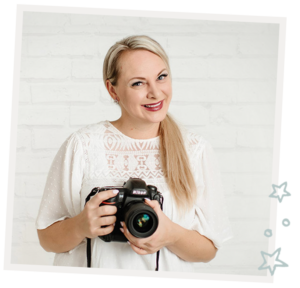
I'm
Lisa DiGeso
I’m on a mission to create uplifting online experiences for photographers ready to elevate their art, their business and their mindset.(...and have fun along the way!)



